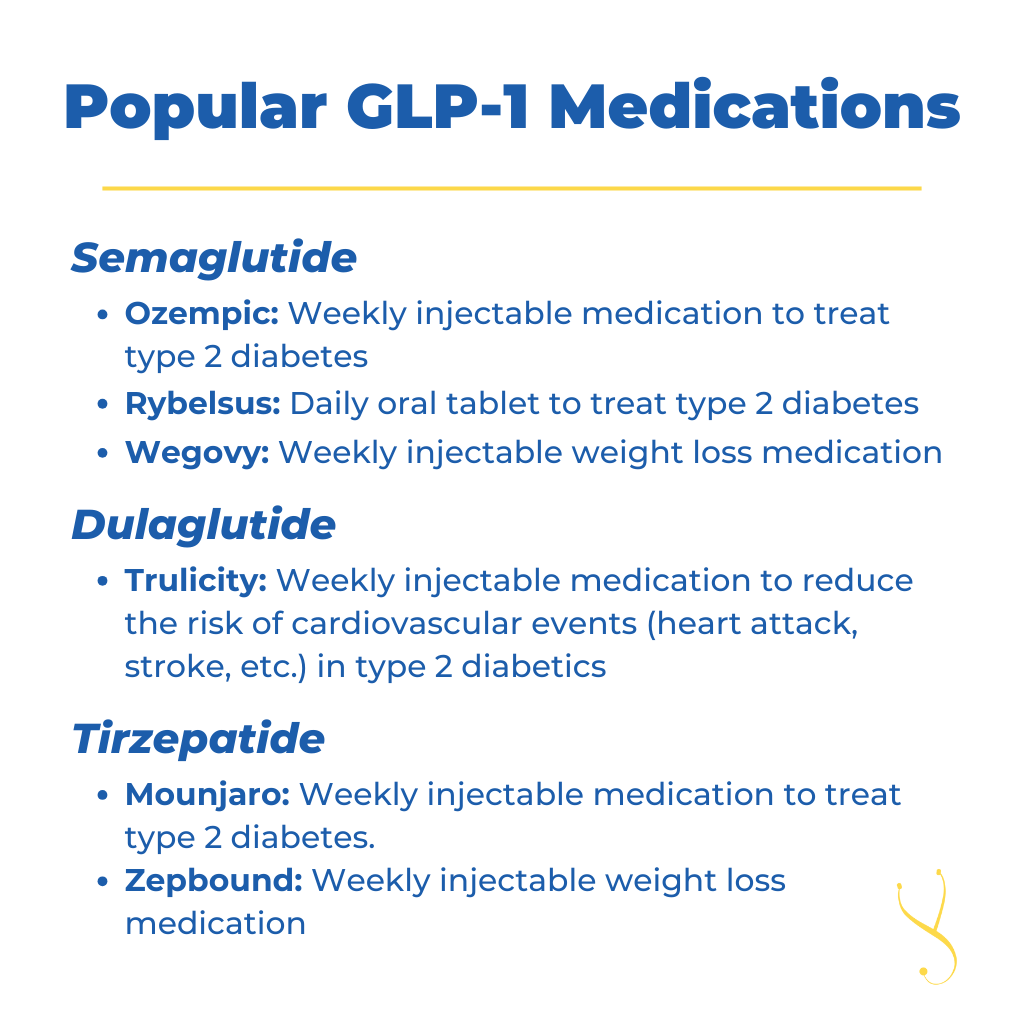Why Is Everyone Excited About GLP-1 Medication?
It’s no secret that many adults want to lose excess pounds. That’s why, wherever you look, you’ll find plenty of recent news about GLP-1 agonists, a class of drugs that lead to often remarkable weight loss.
Clinically known as glucagon-like peptide 1 agonists, GLP-1s were originally developed to treat diabetes. Then, researchers discovered they have a powerful ability to help people shed unwanted pounds, too.
A media frenzy followed. Thanks to news reports and social media, it seems we all know someone, or know of someone, who’s losing weight rapidly and effectively thanks to the GLP-1 weight loss phenomenon.
The Need for Effective Weight Loss Medication
I recently saw a headline arguing that GLP-1 agonists are an even more revolutionary advance than certain aspects of artificial intelligence.
There’s no question that Americans need some help losing weight. Currently, 40% of Americans are obese and another 30% are overweight. That statistic’s particularly alarming when we realize all the comorbidities connected with carrying extra pounds.
Other than direct consequences, such as degenerative arthritis and sleep apnea, it’s controversial whether being overweight in and of itself causes a health risk. What isn’t controversial is that the causes of being overweight — an unhealthy diet and a lack of aerobic exercise — lead to more serious health concerns like diabetes, hypertension, and high cholesterol, though genetics can also play a part.
Weight gain is largely a byproduct of harmful habits and a barometer of problems to come.
One thing is certain: A large segment of our population needs help losing weight.
Popular GLP-1 Medications
These proven GLP-1 drugs are currently available with a doctor’s prescription:
Semaglutide
- Ozempic: Weekly injectable medication to treat type 2 diabetes
- Rybelsus: Daily oral tablet to treat type 2 diabetes
- Wegovy: Weekly injectable weight loss medication
Dulaglutide
- Trulicity: Weekly injectable medication to reduce the risk of cardiovascular events (heart attack, stroke, etc.) in type 2 diabetics
Tirzepatide
- Mounjaro: Weekly injectable medication to treat type 2 diabetes
- Zepbound: Weekly injectable weight loss medication

Why GLP-1s Are Worth the Excitement
Why are these new drugs such an improvement over prior weight loss treatments?
From the 1950s to the 1990s, doctors prescribed amphetamines to decrease a patient’s appetite and help stimulate weight loss. Unfortunately, those led to reports of cardiovascular events.
In the ’70s, other appetite suppressants appeared on the scene, recommended for safe (but limited) usage. They helped with weight loss, but once patients stopped using them, the lost weight invariably returned.
Unlike the weight loss drugs of ages past, GLP-1 agonists are safe and effective, even long term. Although they can have some side effects, such as heartburn, bloating, and rare cases of other more serious digestive diseases, GLP-1s are considered a “forever drug” in the battle against excess weight.

Who Should Take GLP-1 Agonists?
I wouldn’t prescribe a GLP-1 to someone who’s simply looking to shed five pounds without exercise or diet modification.
But for patients who’ve struggled for a long time with excess weight, GLP-1s are a promising lifeline. Consider the power of these treatments: Ozempic users lose 15–20% of their starting weight, according to research. Mounjaro/Zepbound users can lose as much as 30%.
So, with a dose specifically tailored to the patient, the weight comes off. Over time, these patient populations experience a significant reduction in complications like heart and kidney disease, and a decreased mortality rate as well.
Your Healthy Weight Loss Is Our Goal
The doctors at Signature Healthcare can work with you to determine if a weight loss treatment program is appropriate. We’ll help you find the right path to a sustainable weight based on your health history, body type, and lifestyle.
Our goal is to see you achieve optimal health. Reach out to get started.

Dr. Marshall Silverman
Dr. Marshall Silverman, MD, a board-certified internal medicine specialist with over two decades of experience in Charlotte, combines his clinical role with academic pursuits as a clinical associate professor at UNC-Chapel Hill. His diverse interests span from disc golfing and woodworking to playing the violin and authoring illustrated children’s poetry books, reflecting a unique blend of medical professionalism and creative expression.
Disclaimer: The insights and articles provided on this site are for educational purposes only and are created with the utmost care by healthcare professionals. The content is not intended to be a substitute for personalized medical counsel, diagnosis, or treatment from your healthcare provider. We encourage you to consult a medical professional for any health-related questions or concerns.

